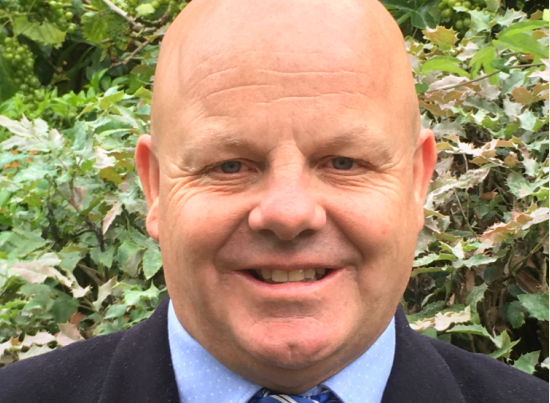
The first Sun reporter arrested under Operation Elveden – Jamie Pyatt – has left the paper and plans to launch a news and features agency based in Cape Town, South Africa.
The long-serving Thames Valley District reporter was arrested on 4 November 2011 when a dozen police officers raided his Windsor home.
It was the start of the biggest investigation in British criminal history and began a four-year ordeal for Pyatt.
He was one of 34 journalists arrested and/or charged under Elveden, accused of misconduct in public office offences. Some 24 of these worked at The Sun.
Only one conviction at trial of a journalist under Elveden still stands, that of The Sun’s Anthony France (who is appealing). Pyatt was one of 13 journalists found not guilty by juries.
Speaking to Press Gazette ahead of his move to South Africa with wife Tansy, he recalled the moment five years ago when he glanced out of the window of his home to see police officers approaching.
Pyatt said his first thought was that were coming to thank him for an act of bravery six days earlier when, with his 20-year-old son, he had foiled an attempted burglary.
He explained: “On the Sunday before my arrest my son Sam and I were having a nightcap after a long BBQ lunch in the back garden when we heard breaking glass and the alarm going off in a community centre that is over the fence at the end of our garden.
“We both went over the fence with cricket bats screaming and swearing and chased off the three burglars who were after the new computers the centre had just received. The police turned up and took statements and thanked us both.
“On the following Friday I was sitting in my office and saw a couple of police officers walking up my drive so I assumed they had returned to ask a few more questions or congratulate us on our reckless, if rather tipsy, bravery on behalf of the community.
“But more and more coppers kept coming up the drive until there were about a dozen and nobody was holding a congratulatory cake.
“It was then that I was told they were from Operation Elveden and I was under arrest.
“The three burglars, I found out later from the community centre, were never caught because the police said they did not have sufficient officers to pursue it.”
Pyatt faced a three-month trial at Kingston Crown Court at the end of 2014/early 2015 alongside five Sun colleagues. John Troup and John Edwards were cleared but the jury failed to reach a verdict on all the charges against Pyatt, Graham Dudman, Chris Pharo and Ben O’Driscoll.
Dudman and O’Driscoll were cleared after a Crown Prosecution Service review of Operation Elveden led to nine out of 12 outstanding cases against journalists being dropped in April 2015. Pyatt and Pharo were finally found not guilty on 15 October 2015 after a second trial at the Old Bailey.
Pyatt said he spent a total of 1,441 days on police bail.
The Old Bailey heard that The Sun paid police contact Simon Quinlan (who was himself jailed) £10,000 for news tips over a nine-year period.
Pyatt said at the trial that he was “given” the contact by The Sun newsdesk and that everything he did was sanctioned by senior colleagues.
He told the court that all the information he received was in the public interest and that there was “nothing in there so confidential and secret the public don’t have a right to read it”.
The jury’s not guilty verdict suggested they agreed Pyatt’s actions were in the public interest.
Looking back on his career, Pyatt said: “I worked at The Sun for 29 years on the staff and a year on contract, so 30 years in all including 18 months as news editor to Kelvin MacKenzie and most of my time as the Thames Valley district man.
“During that time I served under six editors and had a fantastic career which took me to some 35 countries including Africa, New Zealand, China and Australia covering some great exclusives.
“I’m at a crossroads now and my wife and I have decided to seek new challenges and we are going to South Africa where I am going to set up as a freelance and my wife as a nurse.
“It has been a blast and I have worked with fabulous reporters and photographers from Fleet Street including colleagues and rivals but now is the time to move on.
“I intend to work for the British national press and magazines and I hope that the success I’ve had running Thames Valley for The Sun will be replicated working as a freelance out of Capetown.”
For much of his time covering the Thames Valley beat, princes Harry and William were either at school in Eton or serving in the army in nearby Windsor: “So I had a steady stream of royal exclusives.”

Pyatt won British Press Awards Front page of the Year in 2005 for “Harry the Nazi”, secured the first picture of the Yorkshire Ripper after 24 years in Broadmoor and found the long lost sister that John Lennon could never track down himself.
He also helped find the killer of schoolgirl Hannah Foster, 17, who was murdered in Southampton after a night out with friends in 2003.
After winning the trust of her parents Hilary and Trevor, Pyatt worked with Hampshire Police who, with The Sun, put up a substantial reward.
He went to India, where the killer had fled, and worked with UK police on a huge publicity operation which flushed the man out and led to his arrest and extradition.
Hannah’s father Trevor was a character witness for Pyatt at his trials and said: “I would have him on my team any day”.
Pyatt said of his time as a district reporter: “I am proud I spent a lot of time building up contacts with young reporters at grassroots level, giving them a conduit to get their stories on Fleet Street and helping them become national press reporters themselves.
“Fifteen or 20 people got jobs throughout Fleet Street on a variety of titles as a result of my recommendations and giving them a shove up in the same way that I was given a shove up by John Askill, The Sun’s Thames Valley reporter before me, who got me my first shifts.
Asked for his thoughts on Operation Elveden, the Met Police’s £15m investigation into journalists and their sources, Pyatt said: “It has been proven that as far as the journalists were concerned, Operation Elveden was a waste of taxpayers’ money and police manpower at a time when all those resources could have been far better spent, for example, in protecting the public from the terrorist threat we face.
“We were journalists, not jihadists, and the juries understood and accepted that. It was a witch hunt that never should have been allowed to get off the ground.”
After being cleared at the Old Bailey, Pyatt faced yet another trial earlier this this year when he appeared at Banbury Magistrates accused of speeding and failing to provide information as to the identity of the driver of his company car.
After four years spent in the company of solicitors and QCs during Operation Elveden, he decided to defend the case himself and spent months studying the relevant case law.
“I was charged under Section 172 of the the Road Traffic Act 1988 but successfully argued that I had legitimate defence under sub section (4) of the act as I had carried out all due diligence to identify who the driver was and could not identify him or her.
“After going toe to toe with a very grumpy prosecutor who was expecting an easy ride of it, and submitting nine exhibits to the magistrates, they accepted my defence and found me not guilty and complimented me on my defence – a proud moment winning my own court case.”
Pyatt said he will be contacting foreign editors and news editors on national newspapers and magazines before he emigrates in November but can be contacted at jamiepyatt@hotmail.com or 07836 340380 until then.
Pyatt is one of a number of senior Sun journalists to leave the paper after the ordeal of being charged (and ultimately cleared) under Operation Elveden.
Others include: former managing editor Graham Dudman, defence editor Virginia Wheeler, head of news Chris Pharo, picture editor John Edwards, chief reporter John Kay, executive editor Fergus Shanahan, deputy editor Geoff Webster and royal editor Duncan Larcombe.
Operation Elveden was prompted by Sun parent News Corp’s decision to share confidential emails with police revealing details of alleged payments made by The Sun.
It led to the convictions of around 30 public officials accused of acting as journalistic sources, many of whom were jailed.
Email pged@pressgazette.co.uk to point out mistakes, provide story tips or send in a letter for publication on our "Letters Page" blog







